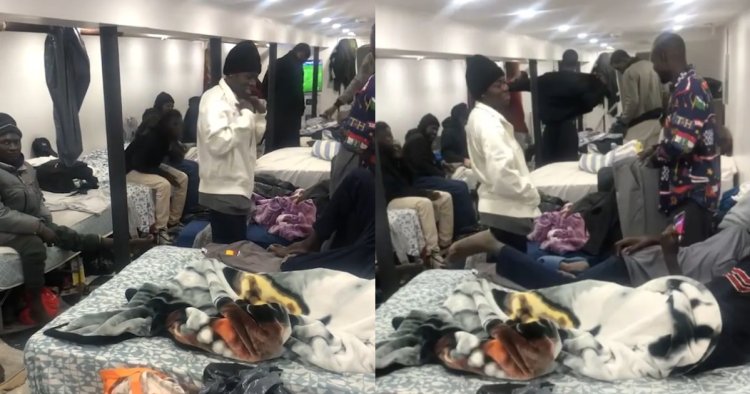Over 70 Senegalese Migrants Discovered Inhabiting Packed NYC Basement
New York City is a sanctuary city in the throes of a migrant-fueled crisis.
Police and citizens have reported spikes in crimes, schools and hotels have been commandeered and regions have become tent cities marked by squalor and violence.
On Monday evening, fire prevention inspectors discovered dozens of illegal migrant men from Senegal living in the basement of a furniture store in Queens.
Fire dept. officials were called to the building on South Richmond Hill after reports of a large number of e-bike batteries were found. Some believed the batteries had been stolen and represented a safety concern.
When investigating the premises, officials discovered that perhaps 80 Senegalese men were living on the first floor and in the basement of the furniture store.
Due to space constraints, officials determined that individuals take turns sleeping on the first floor.
The New York Post reported the building had been “illegally converted into a makeshift hostel, replete with 14 bunk beds on the first floor and 13 regular beds … in the basement.”
The fire dept. report noted the basement area had “no ventilation, no natural light, illegal plumbing and too few exits for the number of people sleeping there.”
The store owner, Ebou Sarr, 47, admitted that he was charging each man “a $300 monthly contribution fee” to live in his store. Sarr added that his fee “was a donation, and he never took more than the migrants could afford.”
When asked about the city’s safety concerns, Sarr said: “I understand that, they say it’s not safe. But you know, I didn’t see any danger. We don’t want danger. We were being mindful … We are smart people. We’re not dumb. So fire hazard? What fire hazard?”
Fire dept. officials disagreed and issued an order for the illegal migrants to vacate the building.
Many of the Senegalese men reported they preferred staying at the furniture store over a city shelter, citing those shelters had more crime and imposed short stay orders.


Leave a Comment